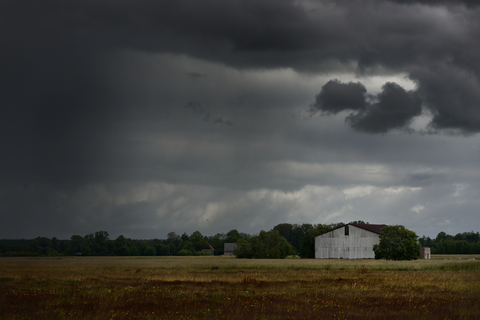Coping with rural stress
Weathering difficult times
Extension's rural stress task force applies programming and expertise from across Extension to help families and small towns respond to current economic, environmental and societal challenges that overwhelmingly affect rural Minnesota and farming communities.
The team works with state agencies and agricultural organizations as well as colleagues throughout the University.
Many Extension faculty and staff live and work in rural Minnesota. They respond daily to issues faced by the people and organizations in their counties. They've compiled the resources on this page to streamline access to financial help and mental health resources in greater Minnesota.
Need immediate help?
- National Suicide Prevention Lifeline at 1-800-273-TALK (8255)
- Throughout Minnesota: call **CRISIS (**274747)
- Crisis Text Line: Text “MN” to 741741
- NAMI-MN Crisis Resources
Minnesota Farm and Rural Helpline is free, confidential and available 24/7. This call center is located in Minnesota. Calls are answered by trained staff and volunteers. If you or someone you know is struggling with stress, anxiety, depression or suicidal thoughts — call. Sometimes it's easier to talk to someone you don't know.
1-833-600-2670 x 1
Farm Information Line
Contact the Farm Information Line for reliable, research-based answers from Extension agriculture and natural resources experts. This is a statewide service backed by a network of local educators, so you'll get information to meet your needs.
Call: 1-800-232-9077
Hours: We answer voicemail and email requests Monday through Friday afternoons. Leave a detailed voicemail or email us with your question for a timely response.
After hours and weekends: Leave a detailed voicemail or email with your question and we'll answer you on the next scheduled Farm Information Line working day.
Anytime: Email us at fil@umn.edu.
Resources for difficult times
Find help, counseling, advocacy, legal and referral resources.
Farmer-Lender Mediation
Need help with farm debt? Learn how mediation can help.
Community coping
Community-level stress is different from individual stress. Read the eReview to find detailed research on rural community stressors and strengths, along with implications for practice in various communities. View the slide presentations in groups or individually to dive deeper into this research and explore its application to your own community. The handouts provide an easy overview of rural and farmer stressors and strengths. Overall, these tools guide community members in understanding and building community resilience.
The Rural Community Stress eReview
Learn about rural community stress, sources of resilience, frameworks for building resilience and successful practice strategies.
Authors: Sarah Beehler, Ph.D., Frederique Corcoran, Monica Kramer McConkey, M.A., LPC, Jeri Jasken, and Alison McIntyre.
Read a summary of this issue (PDF).
Narrated slide presentations
Listen to these narrated slides to learn about community stress, examine stressors and strengths common to rural communities, and explore specific tools that help rural communities understand and build resilience. The final slide presentation applies this information to a fictional rural community in the form of a case study.
Tip: Files are saved as .ppt and can be viewed with Powerpoint or Google Slides. View the slides as a presentation to listen to the speakers.
- Rural Community Stress Part 1: What is rural community stress and why is it important?
- Rural Community Stress Part 2: Understanding rural community stressors and strengths
- Rural Community Stress Part 3: Building rural community capacity and resilience
- Rural Community Stress Part 4: Rural community case study
Handouts for understanding rural stress
Interested in a quick overview of rural and farmer stressors and strengths? Review the research about economic, physical/natural and sociocultural risk and resilience factors.
Mental health
This video introduces mental health language. It gives case examples of "mental health" and "mental illness" and ideas for intervention. And talks about the relationship of mental health as it relates to nutrition, sleep, exercise, poverty, gender, etc.
Mental Health: Yours, Mine and Ours (00:5:46)
Resilience is the ability to bounce back from the consequences of change. It means seeing opportunity in change, not just loss.
These resources provide practical tools to deal with the stress of change, isolation and financial loss.
- Adjusting to income loss
- Building social support and connections
- This page is available as a PDF(2020; University Digital Conservancy)
- Communicating under pressure
- This page is available as a PDF(2020; University Digital Conservancy)
- Taking care of yourself under stress
- This page is available as a PDF(2020; University Digital Conservancy)
- Checking in on your neighbors: Staying physically distant but socially close
- This page is available as a PDF(2020; University Digital Conservancy)
Help for families and children
Losing a job or income affects all members of the family. Adults can become so preoccupied they forget that tough times have an emotional, as well as a financial, impact on their children. Children depend on their parents for emotional security. When parents are tense, upset and inattentive, much of this security is gone.
Family stress is often influenced or moderated by parental stress. It is important that parents take action to manage the amount of stress the family is experiencing. There are strategies that parents can use to moderate family stress.
Parents and stress: Understanding experiences, context, and responses (2015; PDF on University Digital Conservancy)
Resources from around the state and the country
Coping with Farm & Rural Stress connects to the people and organizations from around the state that are ready to help. Extension is a partner with the Minnesota Department of Agriculture in delivering programs and resources for farmers and those experiencing stress in rural Minnesota.
Rural resilience training course — A free online Rural Resilience course, created by Farm Credit Council and multiple partners, is available for farmers and rural community members. Please contact Brittany Jablonsky (jablonsky@fccouncil.com) to learn more about the Rural Resilience course.


